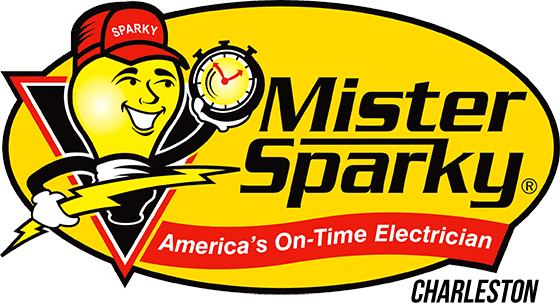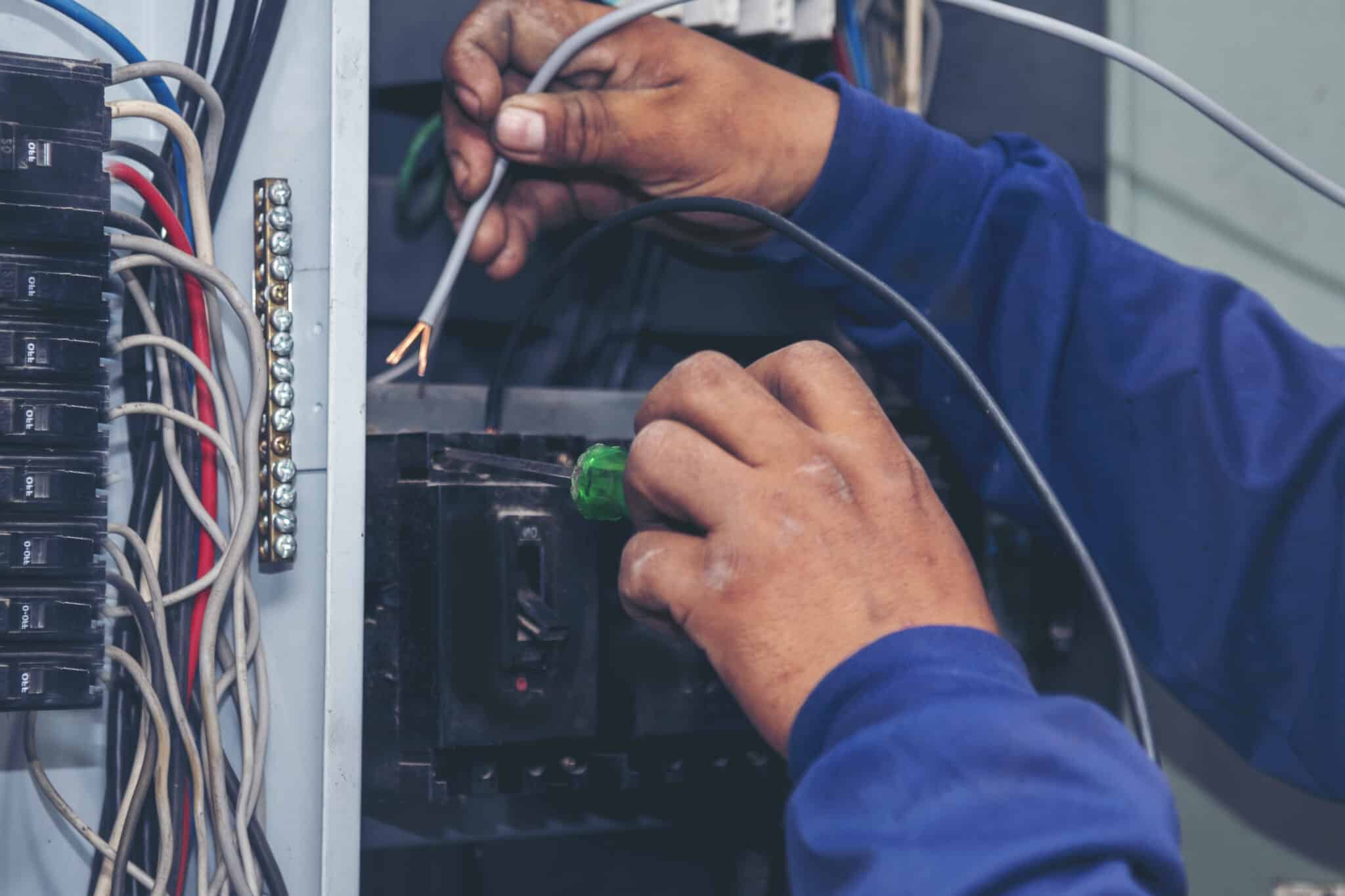Charleston’s humid, coastal climate is not just tough on your home—it’s tough on your electrical components too. With its high humidity, salt-laden air, and fluctuating temperatures, Charleston’s environment presents unique challenges for maintaining reliable electrical systems.
These environmental factors can accelerate wear and tear, reduce efficiency, and even create safety hazards for homeowners. Understanding how these elements interact with electrical components is the first step in protecting your home.
By proactively addressing these challenges, homeowners can extend the lifespan of their electrical systems and avoid costly repairs.
How Charleston’s Climate Impacts Electrical Components
Charleston’s humid, coastal climate poses significant challenges for maintaining the integrity of electrical systems in homes and businesses. The high levels of moisture, salt in the air, and fluctuating temperatures unique to this area contribute to accelerated wear and tear on electrical components.
These environmental factors can corrode metal parts, reduce the lifespan of systems, and even compromise safety. Understanding these challenges is crucial for homeowners who want to safeguard their electrical systems against premature failures. Proactive measures can mitigate damage and help maintain reliable and efficient electrical operations.

Understanding Charleston’s Climate
High Humidity Levels
Charleston’s high humidity levels, which average around 70–80% annually, pose a significant challenge to maintaining reliable electrical components. The persistent moisture in the air creates ideal conditions for condensation to form, particularly inside electrical enclosures, panels, and connections that lack proper sealing.
This moisture compromises the integrity of electrical components, accelerating corrosion and increasing the likelihood of short circuits and potential electrical fires.
Salt Air From Coastal Winds
The salt-laden air prevalent in Charleston’s coastal regions presents a unique challenge for protecting electrical components from corrosion. Salt particles settle on exposed wiring, outlets, and fixtures, triggering chemical reactions that degrade metal surfaces over time.
This corrosion weakens electrical components, reducing their performance and increasing the risk of failure. Even minor exposure to salt air can have a cumulative impact, further complicating routine maintenance efforts.
Without proper precautions, such as using corrosion-resistant materials and protective coatings, salt air can severely shorten the lifespan of critical electrical components.
Seasonal Temperature Fluctuations
Charleston’s seasonal temperature swings create additional stress on electrical systems through repeated cycles of expansion and contraction. As temperatures rise and fall, materials like metal and plastic adjust to the changes, which can weaken connections over time.
This phenomenon often results in loose wires, reduced performance, and even complete system malfunctions if left unaddressed.
The combination of temperature fluctuations and high humidity exacerbates wear, as moisture often penetrates weakened seals. Routine inspections and adjustments are essential to counteract these stresses and maintain system integrity.
How Charleston’s Climate Affects Electrical Components
Corrosion of Metal Parts
The combination of salt and moisture in Charleston’s environment accelerates the corrosion of metal components in electrical systems. This corrosion is particularly common in exposed wiring, electrical panels, and outdoor outlets.
Over time, rust and degradation reduce the structural integrity of these parts, making them more likely to fail during use.
Corroded components also pose serious safety risks, such as increasing the chances of electrical shorts or sparking. Homeowners can mitigate this issue by using corrosion-resistant materials and scheduling regular professional inspections.
Moisture Intrusion
High humidity levels in Charleston significantly increase the risk of moisture intrusion into electrical enclosures and systems. When condensation forms inside electrical boxes or outlets, it can lead to short circuits, malfunctioning systems, or even electrical fires.
Moisture intrusion also accelerates the deterioration of insulation, further increasing safety hazards. Left unaddressed, this issue can compromise the efficiency and reliability of the entire electrical system. Proper sealing, along with routine maintenance, is critical to protect against moisture-related damage.
Wear and Tear From Temperature Changes
Charleston’s fluctuating temperatures subject electrical components to repeated expansion and contraction, leading to long-term damage. Materials like wiring and connectors weaken under these conditions, creating loose or unstable connections.
These weakened connections can result in intermittent power delivery, system malfunctions, or total outages.
The combined stress of temperature changes and other environmental factors like humidity accelerates the aging of electrical systems. Preventative maintenance and the use of flexible, durable materials can help reduce these risks.
Increased Energy Usage
The humid climate forces electrical appliances and cooling systems in Charleston to work harder, leading to increased energy consumption. Air conditioning units, dehumidifiers, and other systems designed to regulate indoor climates face excessive strain, shortening their operational lifespan.
This higher energy usage not only inflates utility bills but also puts additional pressure on electrical circuits, increasing the risk of overloading.
Over time, this cycle can result in damage to both the appliances and the electrical infrastructure. Homeowners can address this issue by optimizing system efficiency and installing surge protectors to handle spikes in usage.
Common Electrical Issues in Coastal Areas
Rusted Electrical Panels
In coastal areas like Charleston, electrical panels are particularly vulnerable to rust due to high moisture levels and salt exposure. Corrosion weakens the structural integrity of the panels, compromising their ability to protect internal components.
Rusted panels can lead to system inefficiencies, electrical shorts, or even complete power failures if the damage goes unnoticed. The problem is especially severe for outdoor panels or those in poorly ventilated spaces. Regular inspections and the use of corrosion-resistant materials are essential to mitigate this common issue.
Ground Faults
Ground faults occur more frequently in Charleston due to the high humidity that often seeps into outlets, wiring, or fixtures. When moisture contacts exposed or damaged wiring, it creates an unintended electrical path, increasing the risk of short circuits or shocks.
Ground faults are not only dangerous but also lead to appliance damage and energy waste. This issue is particularly common in outdoor or bathroom outlets that face frequent exposure to water. Installing ground fault circuit interrupters (GFCIs) is a critical step in preventing these hazards.
Malfunctioning Outdoor Fixtures
Outdoor electrical fixtures in Charleston are constantly exposed to the elements, including high humidity, rain, and salt air. Over time, these conditions degrade the wiring, connections, and casings of exterior lights, outlets, and other fixtures. Malfunctioning fixtures can cause flickering, inconsistent power delivery, or total failure.
Additionally, exposed fixtures are more prone to water intrusion, increasing the risk of electrical hazards. Homeowners can reduce these risks by using weatherproof covers and ensuring all fixtures are sealed properly against moisture and debris.
Frequent Power Surges
Power surges are another common issue in Charleston, especially during the humid months and stormy seasons. Sudden changes in electricity flow, often caused by storms or high energy demands, can damage sensitive electronics and appliances.
Surges are further exacerbated by moisture buildup, which can interfere with power delivery and create unstable electrical conditions. Without proper protection, frequent surges can shorten the lifespan of key household systems. Installing whole-house surge protectors and maintaining stable power sources are vital for long-term protection.
Protecting Electrical Components in Charleston’s Climate
Use Weatherproof Covers
Installing weatherproof covers for outdoor electrical outlets and fixtures is a simple but effective way to shield components from Charleston’s harsh climate. These covers protect against moisture, salt, and debris, which can otherwise infiltrate and damage sensitive parts.
By creating a barrier, weatherproof covers help maintain the integrity of outdoor wiring and connections, reducing the risk of corrosion and malfunctions. They are particularly important for fixtures exposed to direct rain, salt air, or high humidity. Regularly inspecting and replacing worn or damaged covers ensures continued protection.
Opt for Corrosion-Resistant Materials
Choosing corrosion-resistant materials, such as stainless steel or marine-grade metals, is crucial for coastal environments. These materials are specifically designed to withstand the deteriorating effects of salt and humidity, making them ideal for Charleston’s climate.
Corrosion-resistant components, like screws, brackets, and wiring, provide a longer-lasting solution compared to standard materials. They are also more effective in maintaining reliable performance despite prolonged exposure to harsh conditions. Investing in these materials upfront can save homeowners from costly repairs and replacements in the future.
Regular Maintenance and Inspections
Scheduling routine maintenance and professional inspections is key to identifying and addressing potential issues before they escalate. Regular check-ups help spot early signs of corrosion, loose connections, or moisture buildup that might compromise the system’s safety and efficiency.
Licensed electricians can recommend tailored solutions to combat Charleston’s unique climate challenges. Inspections also ensure that homeowners stay compliant with local safety codes and regulations. Preventative maintenance reduces long-term risks and ensures electrical systems remain functional year-round.
Install Surge Protectors
Surge protectors are essential in Charleston’s climate, where frequent storms and power fluctuations can damage sensitive electronics. Whole-house surge protectors safeguard appliances, HVAC systems, and other electrical equipment from sudden voltage spikes.
These devices are especially important in high-humidity environments, where moisture can further destabilize power delivery. Surge protectors also reduce the risk of expensive replacements due to electrical damage. Installing them as part of a comprehensive protection plan ensures consistent performance and peace of mind for homeowners.
Seal Electrical Enclosures
Properly sealed electrical enclosures are vital for preventing moisture and salt intrusion, which are common in Charleston’s humid, coastal environment. Waterproof seals and gaskets create a barrier that protects wiring and internal components from corrosion and short circuits.
This added layer of defense is particularly important for outdoor panels and fixtures. Ensuring that enclosures are airtight also helps maintain stable operating conditions and prolongs the life of electrical systems. Homeowners should regularly inspect seals and replace any that show signs of wear or damage.
Benefits of Professional Electrical Services
Expert Assessment
Professional electricians have the expertise to evaluate how Charleston’s unique climate affects your electrical systems and recommend effective solutions. They can identify vulnerabilities such as corroded wiring, moisture infiltration, or improper installations that might go unnoticed by untrained eyes.
This detailed assessment helps homeowners address problems before they escalate into costly repairs or safety hazards. Electricians also provide customized advice, ensuring that any upgrades or adjustments are tailored to the local environment. By working with professionals, homeowners gain confidence in the safety and reliability of their systems.
Preventative Maintenance
Regular maintenance by professionals minimizes the risk of unexpected electrical failures, especially in Charleston’s challenging climate. Electricians can inspect for signs of corrosion, wear, or moisture damage, addressing issues before they impact performance.
Preventative maintenance also extends the lifespan of key components, reducing the frequency of replacements and saving homeowners money in the long run. This proactive approach ensures that electrical systems operate efficiently and remain compliant with safety standards. Maintenance services also provide peace of mind, especially during stormy or high-humidity seasons.
Upgrading Systems
Professional electricians can help homeowners modernize their systems with components better suited for Charleston’s coastal environment. Upgrades may include installing corrosion-resistant materials, surge protectors, or weatherproof enclosures to withstand salt air and humidity.
They can also replace outdated systems that no longer meet efficiency or safety standards. These improvements not only enhance performance but also increase the overall value and safety of the home.
By investing in professional upgrades, homeowners protect their property from climate-induced electrical issues while ensuring long-term reliability.
Compliance With Local Codes
Electrical systems in Charleston must adhere to local safety codes and regulations, which are designed to account for the area’s unique environmental challenges. Licensed electricians are well-versed in these requirements and ensure that all installations and repairs meet the necessary standards.
Compliance with local codes is crucial for both safety and avoiding legal or insurance complications. Professionals can also provide certifications and documentation that demonstrate compliance for homebuyers or insurance providers. This attention to detail helps homeowners avoid potential liabilities and maintain peace of mind.
Long-Term Solutions for Climate Challenges
Install Climate-Resistant Panels
Climate-resistant electrical panels are specifically designed to withstand the harsh environmental conditions found in Charleston. These panels use materials that resist corrosion and offer better protection against moisture intrusion, which is critical for safeguarding sensitive electrical components.
By installing these panels, homeowners reduce the risk of electrical failures caused by salt air or high humidity. Climate-resistant panels also help maintain the efficiency and longevity of wiring and internal components, ensuring reliable power delivery. Upgrading to these panels is a smart investment for long-term protection of your home’s electrical systems.
Use Elevated Installations
In flood-prone areas of Charleston, elevating electrical components is a vital strategy for preventing water damage. Installing electrical panels, outlets, and wiring above typical flood levels reduces the risk of costly repairs and dangerous malfunctions.
Elevated installations also help protect sensitive electrical components from saltwater exposure during storms or high tides. This approach is especially critical for homes located in low-lying coastal regions where flooding is more frequent.
Proactively positioning components at safe heights enhances safety and ensures uninterrupted performance even during severe weather.
Plan for Storm-Resistant Systems
Given Charleston’s susceptibility to storms, incorporating storm-resistant features into your electrical systems is essential. Installing whole-house surge protectors, backup generators, and durable weatherproof enclosures can significantly reduce the impact of power disruptions.
These solutions not only protect your electrical components but also maintain power for critical systems like refrigeration and HVAC during outages. Storm-resistant systems also guard against the long-term wear caused by repeated power surges and moisture intrusion. A professionally designed and installed storm-ready electrical system ensures your home remains safe and functional year-round.
Opt for Corrosion-Resistant Wiring
Corrosion-resistant wiring is a long-term solution to Charleston’s climate challenges, particularly the effects of salt air and humidity. Using specialized materials like marine-grade wiring protects electrical components from the accelerated degradation commonly seen in coastal areas.
This type of wiring is insulated against moisture and designed to resist breakdown, ensuring durability and reliable performance.
Installing corrosion-resistant wiring minimizes the risk of short circuits, power loss, and safety hazards caused by deteriorated materials. Homeowners who invest in this upgrade benefit from fewer maintenance issues and a longer system lifespan.
Protect Your Home’s Electrical Components Today!
Charleston’s climate is tough on your electrical components, but you don’t have to face these challenges alone. At Mister Sparky of Charleston, our expert electricians provide tailored solutions to protect your home from humidity, salt air, and temperature fluctuations.
From preventative maintenance to climate-resistant upgrades, we’ve got you covered. Schedule your service today and ensure your electrical systems stay safe, reliable, and efficient in Charleston’s demanding environment!

Electrical Components FAQs
1. Why does salt air affect electrical components?
Salt air accelerates the corrosion of metal parts in electrical components by facilitating chemical reactions that weaken their structure. This is particularly damaging to wiring, panels, and exposed fixtures, reducing their efficiency and lifespan.
2. Can I use regular outdoor outlets in Charleston’s climate?
No, regular outdoor outlets are not suitable for Charleston’s humid, coastal conditions. You should use weatherproof and corrosion-resistant outlets designed specifically to protect electrical components from moisture and salt air.
3. How often should I schedule electrical inspections in humid climates?
It is recommended to schedule electrical inspections at least once a year in humid climates like Charleston. Homes directly exposed to salt air or frequent storms may require more frequent inspections to protect electrical components.
4. What’s the best way to prevent moisture-related damage to electrical components?
Sealing electrical enclosures, using weatherproof covers, and installing corrosion-resistant materials are key strategies. Regular maintenance is also essential to identify and address early signs of moisture damage.
5. Are surge protectors necessary for homes in Charleston?
Yes, surge protectors are essential due to frequent storms and power fluctuations in Charleston. They safeguard sensitive electrical components and appliances from voltage spikes, which can cause significant damage.






